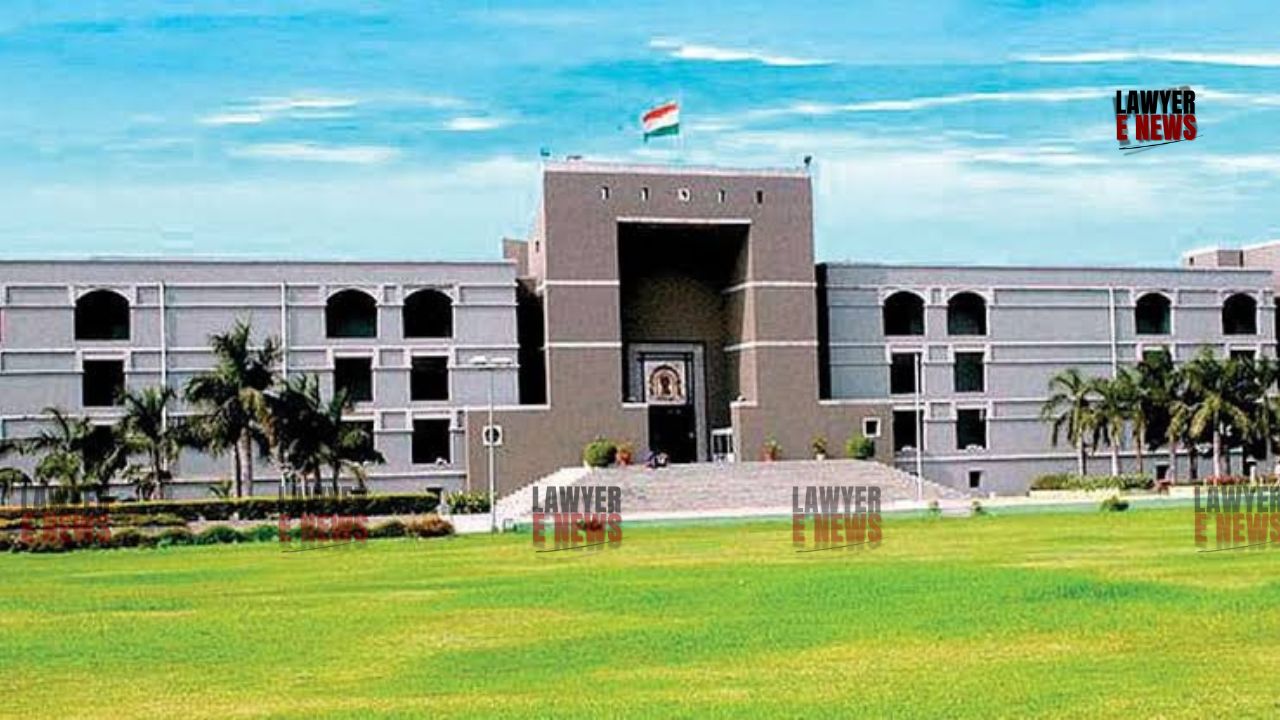-
by sayum
14 February 2026 2:22 PM



Gujarat High Court dismissed a petition challenging the redevelopment of Nidhi Apartment in Ahmedabad, affirming that a minority of occupants cannot obstruct a redevelopment project when over 75% of the members have consented.
"Public Interest Overrides Private Dissent in Redevelopment Cases," Rules High Court
The dispute arose when five shop owners of Block No. 1 of Nidhi Apartment resisted vacating their premises for redevelopment, citing lack of requisite consent and non-issuance of development permissions. The Gujarat Housing Board initiated the redevelopment project based on the consent of 94 flat owners and 48 shop owners, constituting over 75% of the association.
The petitioners contended that only 11 members (10 flat owners and 1 shop owner) of their block had agreed, falling short of the statutory requirement under Section 60A of the Gujarat Housing Board Act, 1961, as amended in 2019.
Key Legal Issues and Court's Observations
Definition of "Building" and Consent Requirement:
The petitioners argued that the consent requirement should apply block-wise. The court rejected this contention, relying on the comprehensive definition of "building" in the Gujarat Ownership Flats Act, 1973, which treats all blocks of a single property as a unit.
Justice Shelat remarked:
“All blocks of Nidhi Apartment constructed and existing on the property in question would be considered as a building … The context in which ‘building’ is used in Section 60A(1) makes it clear that consent of 75% of the occupiers of the entire building suffices.”
Role of Development Permission:
Petitioners contended that without development permission, vacating their premises was premature. The court clarified that vacating is a precondition for initiating the permission process and does not require completion beforehand.
Observation: “There is no nexus between obtaining development permission and vacating premises; the process of redevelopment begins once vacant possession is obtained.”
Common Area Allocation:
The petitioners demanded pro-rata rights over common utilities. The court found no basis for this claim, noting that such areas were neither sold nor leased to them. The redevelopment scheme already offered shops with 25% more area than currently occupied.
The court condemned the petitioners’ attempt to delay redevelopment, highlighting their “non-bona fide” intentions. Justice Shelat observed that 93% of the association’s members supported the project, and stalling it served no legitimate purpose.
"Frivolous attempts by minority members must be discouraged. The actions of the petitioners are unjustified and against the interest of the majority," the court asserted, imposing a cost of ₹10,000 on the petitioners to be deposited with the Gujarat State Legal Services Authority.
This judgment reinforces the principle that redevelopment projects should not be hindered by a few dissenters when the majority aligns with statutory requirements. It emphasizes the primacy of public interest in urban redevelopment, ensuring faster project execution and better living conditions.
Date of Decision: December 27, 2024
